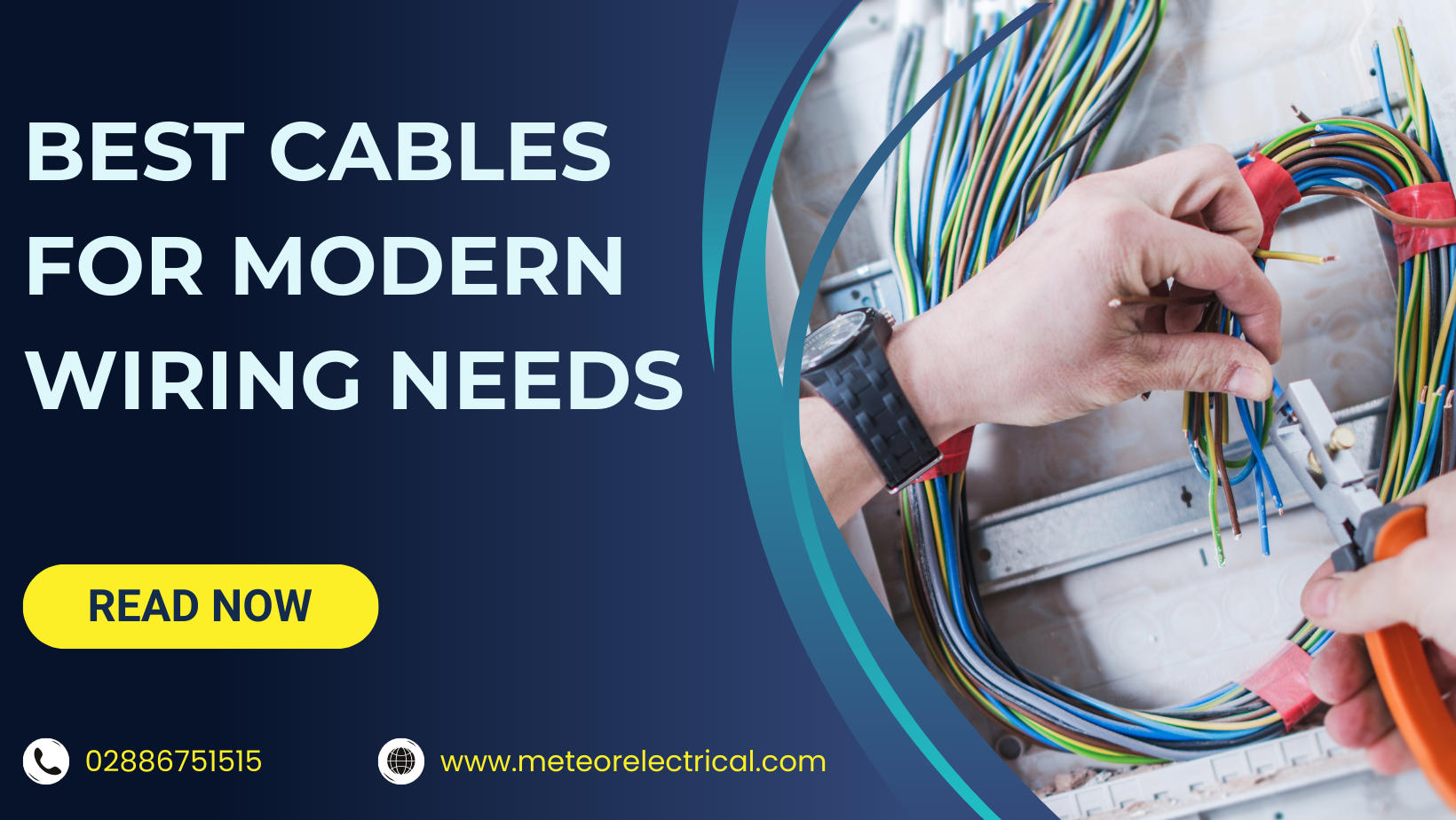Future-Proof Your Home: The Best Electrical Cables for Modern Wiring Needs
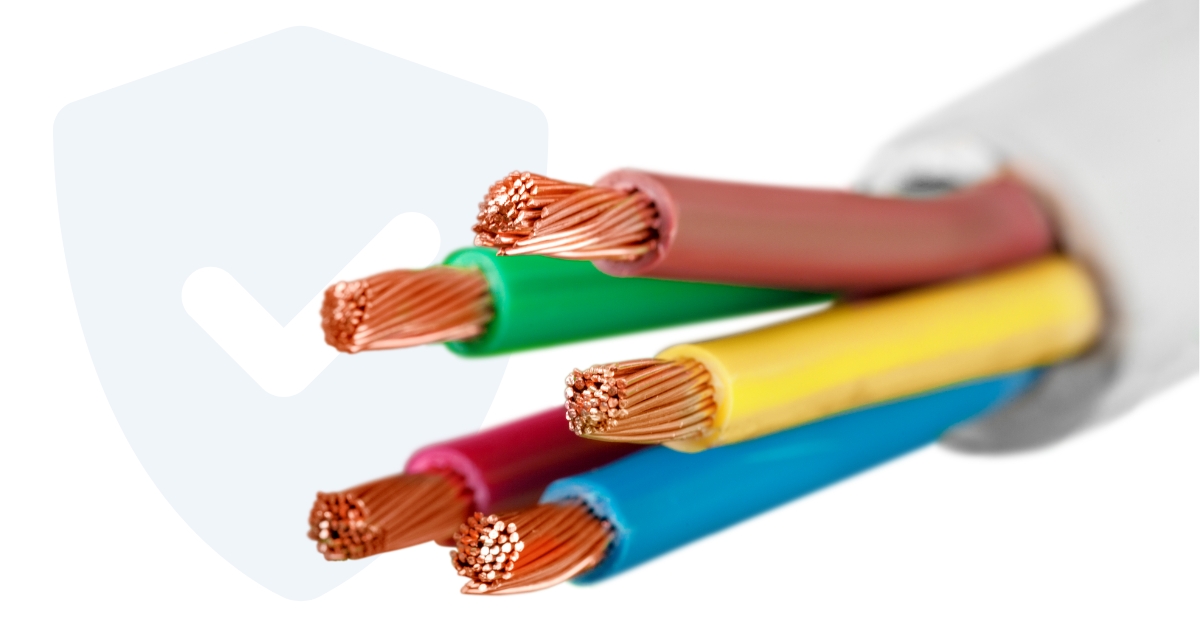
Rapid technological advancements have paved the way for rising electrical demands. Investing in a modern electrical system for your home has never been more vital. Outdated or subpar wiring can lead to inefficiencies, safety hazards, and potential failures. The best electrical cable for home wiring makes sure your system operates both efficiently and safely.
This guide will help you select the right cables, covering essential considerations, installation tips, and how quality choices can future-proof your home.
Choosing the Best Electrical Cable for Home Wiring
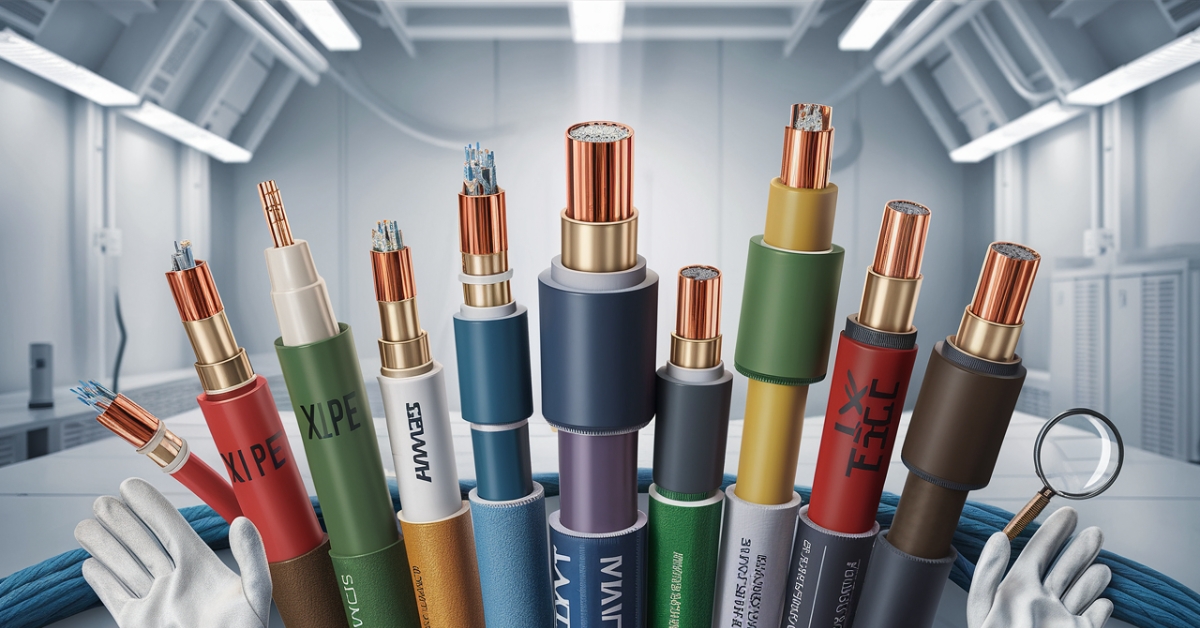
Consider a number of important factors to ensure that the best electrical cable for home wiring meets your needs and safety regulations:
Voltage Rating: The voltage rating of a cable indicates the maximum power it can handle without overheating. Choose cables with voltage ratings that either match or surpass your system requirements to avoid any possible risks.
Ampacity: The maximum current a cable can securely transport is referred to as its ampacity. The cable ampacity should be decided according to your home's electrical needs to prevent overheating and fires.
Environmental considerations: Different installation situations call for particular kinds of cables. To protect indoor wiring from moisture and physical strain take into account shielding and insulation. Choose sturdy weather-resistant cables for outdoor wiring.
Understanding Cable Insulation and Jacket Materials
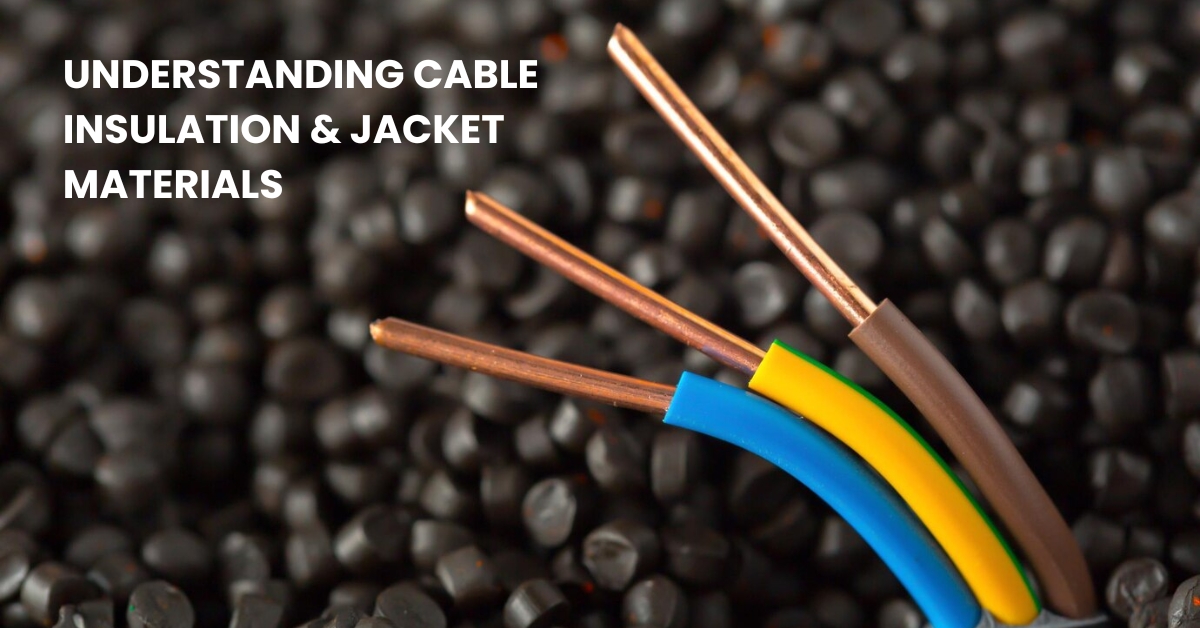
The insulation and jacket materials of cables are pivotal for their performance and longevity:
Insulation Materials: PVC and cross-linked polyethylene (XLPE) come as the standard options. PVC is inexpensive and flexible but XLPE is better at withstanding heat and electricity and is better suited for more demanding applications.
Effect on Performance: The insulation type influences the cable's resistance to temperature fluctuations, electrical strain and chemical exposure. Proper insulation also reduces the chance of electrical problems and guarantees dependable performance.
Materials of the Jacket: The outer jacket protects against environmental factors and physical harm. For outdoor use, choose UV-resistant jackets. For areas prone to fire, choose flame-retardant jackets.
Credit: Allied Wire & Cable
Tips for Installing Electrical Cables Safely and Effectively
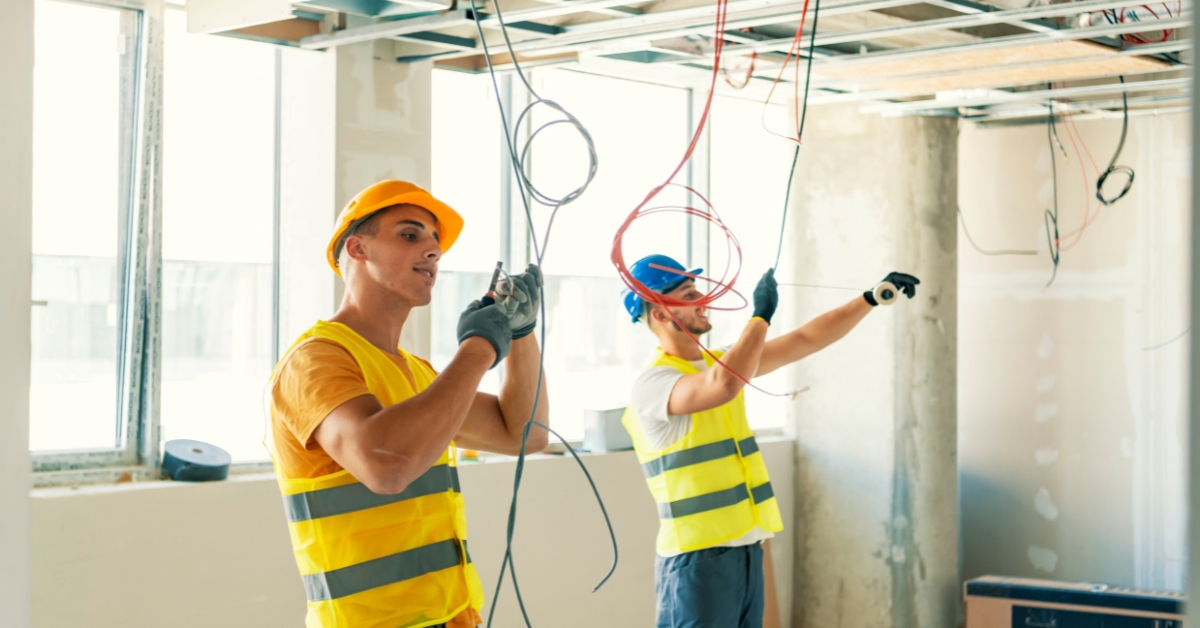
Maintaining a secure and effective electrical system requires proper installation. To ensure a successful installation follow these:
- Planning: Evaluate your wiring requirements and choose the right size and type of cable for each location.
- Prepare: Assemble all required equipment and supplies such as connectors, cable cutters and strippers.
- Installation: Make sure the cables are adequately supported and shielded from harm as you run them in accordance with your layout plan.
- Testing: To make sure the wiring is safe and operates as intended, test it before completing the installation.
Common Pitfalls:
• Keep cables that are too small for the electrical load off of circuits.
• Check that cords are not subjected to excessive heat or physical harm.
• Avoid making incorrect connections which may result in malfunctions or short circuits.
• To guarantee safety and stay out of trouble with the law always abide by the local electrical codes and regulations.
Maintaining and Upgrading Your Electrical System
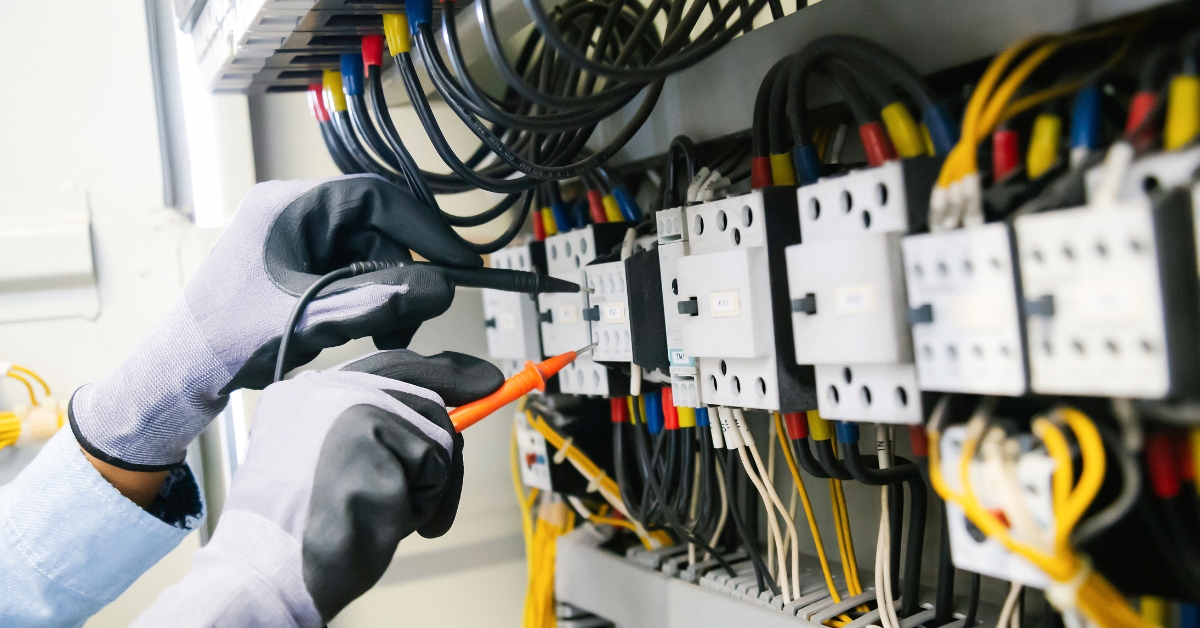
Regular maintenance and timely upgrades are crucial to maintaining the optimal performance of your electrical system.
Regular Upkeep: Check cables on a regular basis for deterioration wear, and damage. Make sure all connections are corrosion-free and firmly fastened.
Signs of Needed Upgrades: Watch for frequent tripped circuits, flickering lights or outdated wiring methods. These signs may indicate that your cables or system need an upgrade.
Periodic Assessments: Arrange for expert inspections to assess your electrical systems state and identify areas in need of repair.
Why Quality Matters? Choosing High-Quality Cables at Meteor Electrical
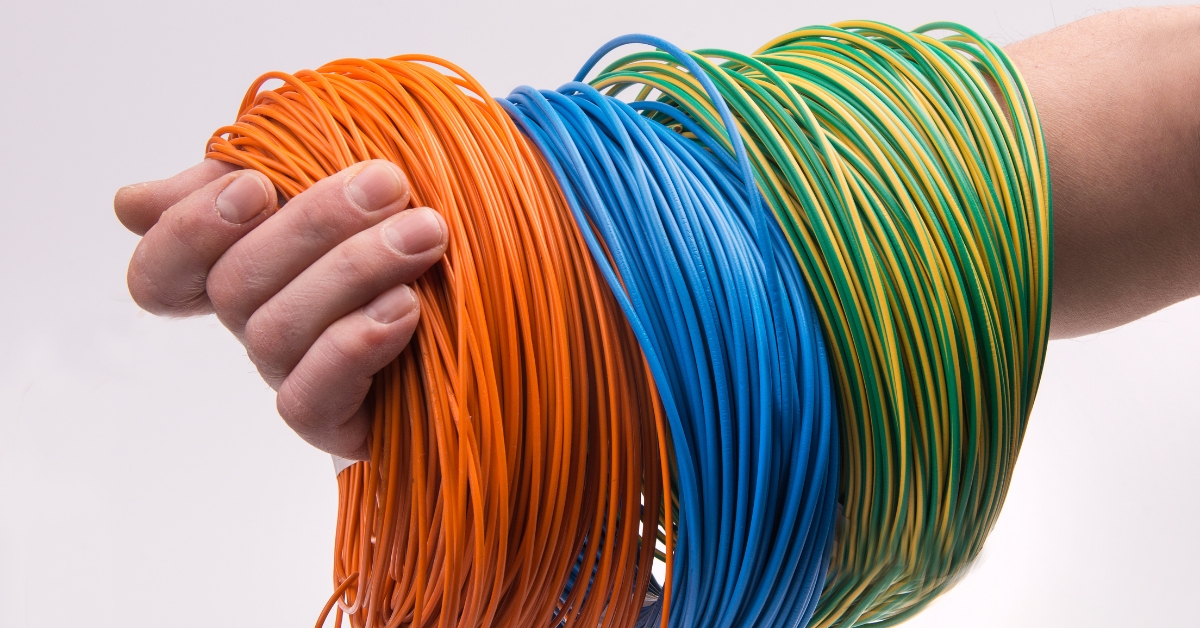
Quality is crucial when selecting electrical cables for home wiring. Here’s why investing in high-quality cables from Meteor Electrical makes a difference:
Commitment to Quality: Meteor Electrical is dedicated to producing high-quality products that either meet or surpass industry standards. Our cables are made to provide excellent performance and safety.
Long-Term Reliability: Reliable and efficient operation of your electrical system is guaranteed by high-quality cables. Purchasing high-quality cables lessens problems and lowers the frequency of repairs.
Industry Standards: To promote optimal and safe performance, Meteor Electrical range of products go through extensive testing and comply with the strictest industry standards.
Electrical Cable Buy Online at Meteor Electrical
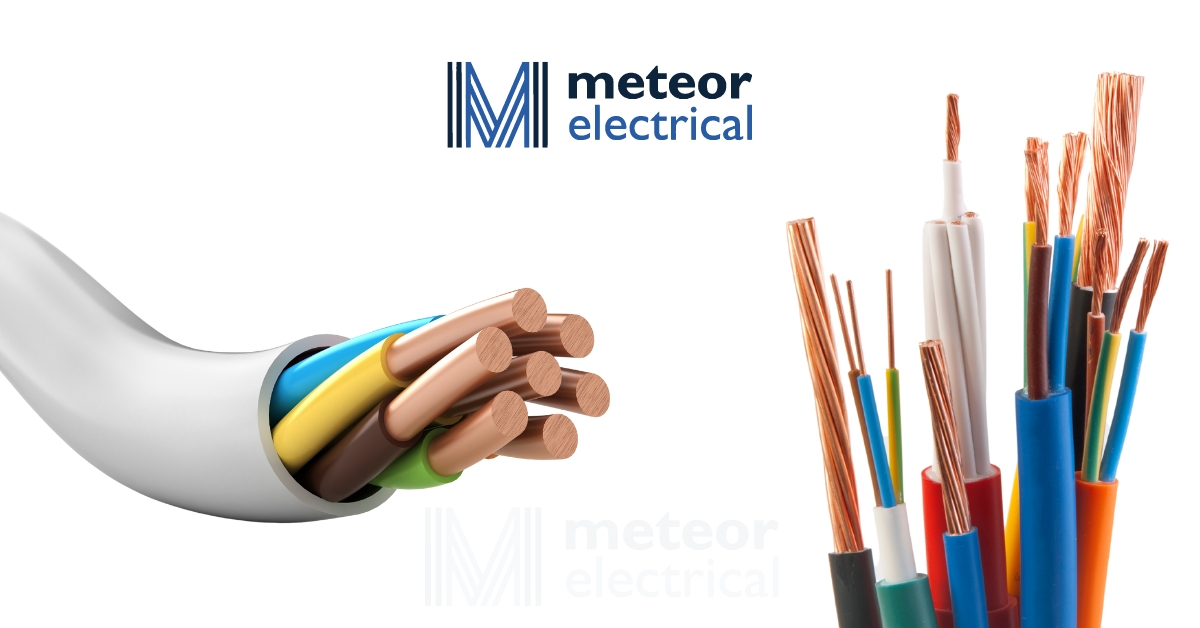
At Meteor Electrical, our product lineup incorporates all the needs of a modern home electrical system. Some of our most reliable products include:
1. 6242Y 1.5mm Twin & Earth, Blue/brown Cable (100mt coil): The grey PVC outer sheath of the 6242Y BASEC approved standard house-wiring cable makes it perfect for lighting circuits and house wiring. The cable size is 1. 5 mm. The conductor is composed of two solid plain copper cores and the insulation is PVC. It is rated for 300/500 volts at voltage and 18 amps at maximum current. The temperature rating ranges from 0°C to +70°C.
2. Single PVC/PVC 1.5mm Brown & Earth Cable (100m coil): The PVC-sheathed brown and earth cable is intended for general-purpose wiring where an earth continuity conductor is required. Its core colors are bare earth and brown, and its cable size is 1 point 5 mm. The conductor is made of plain annealed copper, and the insulation is grey PVC. Thanks to its voltage rating of 300/500 volts, the cable functions well in a temperature range of 0°C to +70°C.
3. 1.5mm 6491B Single Core Black Cable (100m coils): This cable is suitable for use in conduit and for fixed, protected installations, particularly in environments where fire, smoke emission, and toxic fumes pose a potential threat. It has a cable size of 1.5mm and meets standards BS7211 and BASEC approval. With a voltage rating of 450/750V, the cable operates effectively within a temperature range of 0°C to +90°C.
Check out our complete range of electrical lighting and cable solutions by visiting our online store today!
Conclusion: Future-Proof Your Home with the Right Electrical Solutions
The right electrical cables will determine the lifespan, efficiency and security of the electrical system in your house. By considering factors like voltage rating, ampacity and insulation materials, you can make well-informed decisions that meet your needs. To improve the efficiency and safety of your home's electrical system, look into your options from reliable vendors such as Meteor Electrical for the best electrical cable for home wiring.
FAQs
1. Which cable kinds work best for residential wiring?
Select cables with appropriate voltage ratings and ampacity, such as those with PVC or XLPE insulation for residential wiring. Make sure they satisfy your home's electrical requirements and local codes.
2. How can I select the ideal cable for my unique requirements?
Take into account variables like installation requirements, voltage, current capacity and environmental circumstances. The ideal cable type for your needs can also be determined by speaking with a qualified electrician.
3. What are the advantages of employing premium cables?
Better performance, long-term dependability, safety and durability are all provided by high-quality cables. They provide better value and peace of mind because they are less likely to break down or require regular maintenance.

